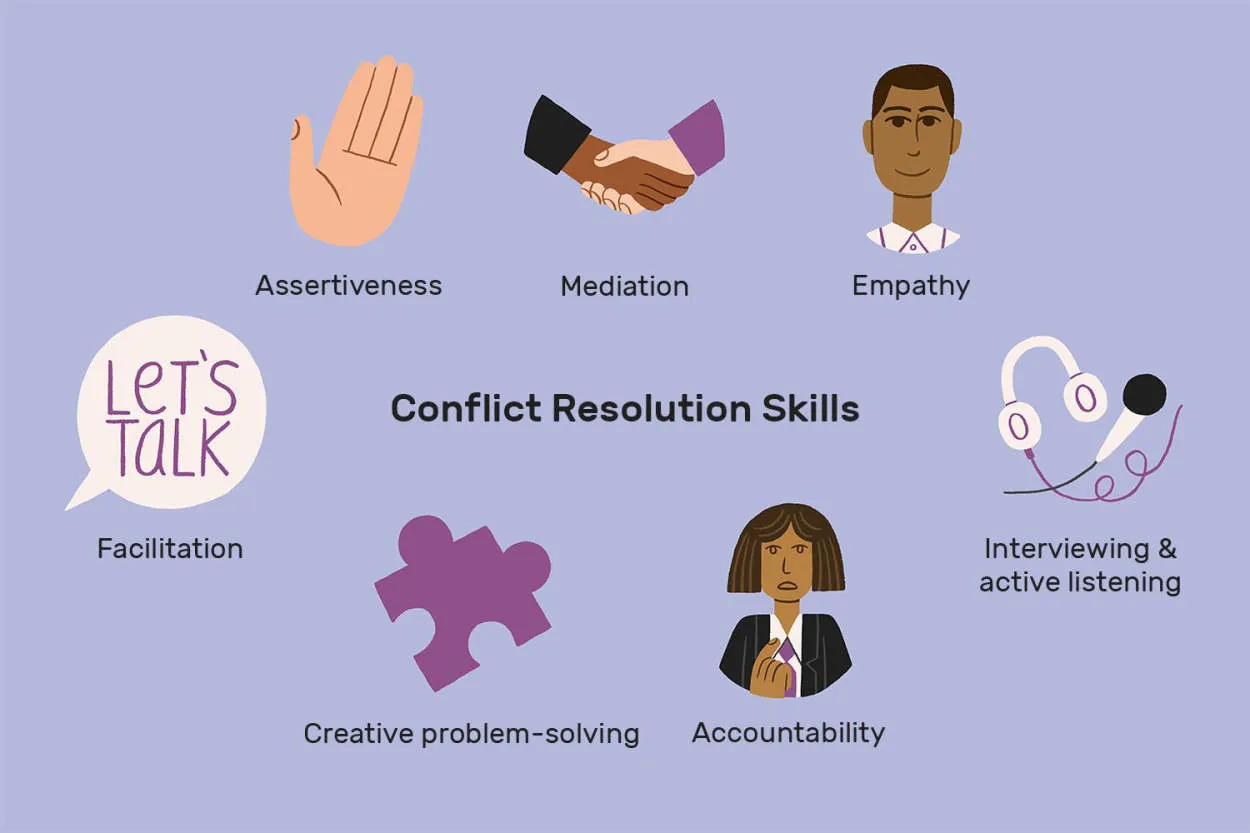In today’s fast-paced and diverse world, conflict is inevitable. However, learning effective conflict resolution skills is essential for maintaining healthy relationships and fostering a productive work environment. In this article, we will explore the importance of building these skills and provide valuable tips for successfully navigating conflicts.
Active Listening and Empathy
In order to build effective conflict resolution skills, it is crucial to incorporate the principles of active listening and empathy.
Active listening involves fully focusing on the speaker and seeking to understand their perspective. This means giving your undivided attention, avoiding distractions, and providing nonverbal cues to show that you are engaged. Additionally, ask clarifying questions to ensure you comprehend their point of view.
Empathy plays a vital role in conflict resolution by enabling individuals to understand and relate to the emotions and experiences of others. It involves putting yourself in their shoes and genuinely trying to feel what they are feeling. By showing empathy, you create a safe and supportive environment, fostering open communication and understanding.
By combining active listening and empathy, you not only make the other person feel heard and valued, but you also gain a deeper understanding of the underlying issues contributing to the conflict. This enables you to find mutually beneficial solutions, resolve conflicts more effectively, and strengthen relationships.
Problem-Solving Techniques
Building Effective Conflict Resolution Skills
Conflict is a natural part of life, and being equipped with effective problem-solving techniques can greatly contribute to resolving conflicts in a satisfactory manner. By building and honing conflict resolution skills, individuals can navigate disagreements and find mutually beneficial solutions. Here are a few essential problem-solving techniques to enhance your conflict resolution abilities:
- Active listening: This technique involves fully engaging in the conversation and seeking to understand the other person’s perspective without interrupting or judging. Active listening helps create an atmosphere of trust and promotes effective communication.
- Identify underlying interests: Instead of focusing solely on positions, it is crucial to identify the underlying interests of all parties involved. By understanding the motivations and concerns of each person, you can find common ground and work towards a solution that addresses everyone’s needs.
- Generate multiple options: Brainstorming and exploring various potential solutions can increase the chances of finding the best outcome for all parties. Encourage creativity and innovative thinking while considering the practicality and feasibility of each option.
- Evaluate and choose the best solution: Assess the pros and cons of each potential solution and evaluate them against the established criteria. Select the option that offers the highest likelihood of meeting both immediate and long-term needs while minimizing negative consequences.
- Communication skills: Effective communication is vital in conflict resolution. Expressing thoughts and emotions clearly and respectfully helps prevent misunderstandings and promotes productive dialogue.
- Embrace empathy and perspective-taking: Understanding the emotions and viewpoints of others is crucial for successful conflict resolution. Developing empathy and practicing perspective-taking allows for a deeper appreciation of different experiences and fosters empathy-driven solutions.
- Collaboration and compromise: Building collaborative relationships and being open to compromise are essential in finding mutually satisfying resolutions. Recognize that compromise does not mean sacrificing core values but rather finding middle ground that accommodates both parties.
By employing these problem-solving techniques and continually developing your conflict resolution skills, you can navigate conflicts with confidence and create outcomes that promote understanding and harmony.
Effective Communication Strategies
When it comes to building effective conflict resolution skills, having strong communication strategies in place is crucial. Communication plays a critical role in resolving conflicts and maintaining positive relationships. Here are some key strategies to help enhance your communication skills:
-
Active Listening:
Listening attentively and empathetically is important in conflict resolution. It enables you to understand the other person’s perspective and helps create a safe space for effective communication.
-
Open Communication:
Encourage open and honest dialogue with the other party involved in the conflict. Create an environment where both parties feel comfortable expressing their thoughts and feelings without fear of judgment.
-
Assertive Communication:
Express your needs, wants, and boundaries clearly and respectfully. Use “I” statements to share your feelings and avoid blaming or attacking the other person. This promotes understanding and reduces defensiveness.
-
Collaboration:
Work together towards a mutually beneficial solution. Emphasize cooperation rather than competition. Seek common ground and explore creative alternatives that meet the needs of all parties involved.
-
Non-Verbal Communication:
Pay attention to non-verbal cues such as body language and tone of voice. Ensure that your non-verbal communication aligns with your intended message, as it can heavily influence how your words are perceived.
-
Respect:
Show respect towards the other person by actively listening, valuing their opinions, and avoiding disrespectful language or behavior. Mutual respect fosters an environment of trust and collaboration.
By incorporating these effective communication strategies into your conflict resolution efforts, you can improve understanding, reduce tension, and work towards resolving conflicts in a positive and constructive manner.
Conclusion
Building effective conflict resolution skills is crucial for personal growth and maintaining healthy relationships. By understanding the underlying causes of conflicts, practicing active listening, and employing effective communication techniques, individuals can navigate disputes effectively. Additionally, cultivating empathy and finding common ground can contribute to finding win-win solutions. Developing these skills empowers individuals to manage conflicts constructively and foster positive collaborations.




